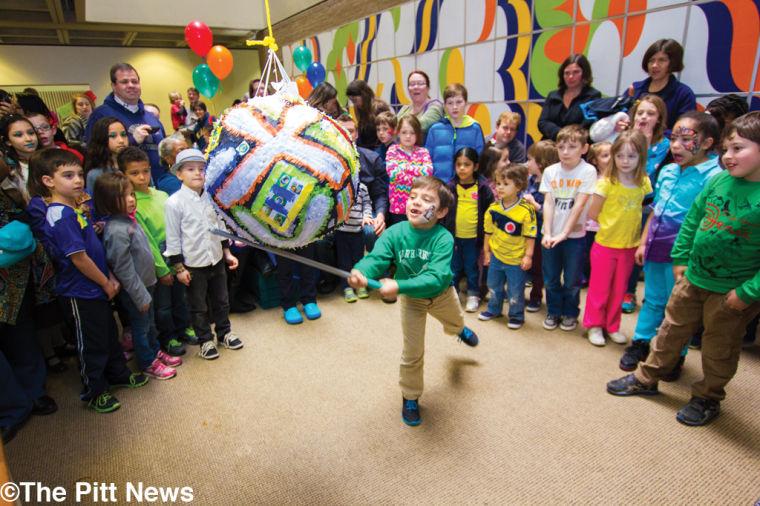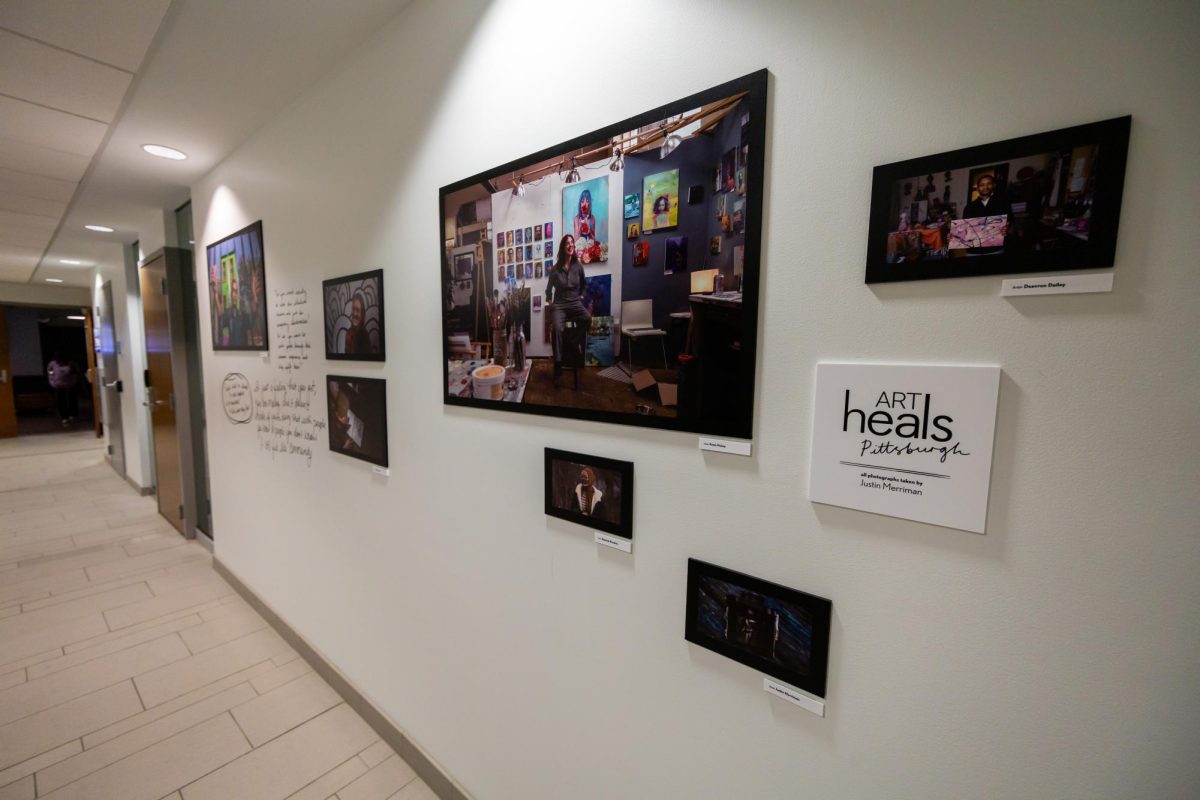Cultural festival draws delicacies, trinkets from abroad
March 30, 2014
Hungry festivalgoers sporting soccer jerseys from their home countries danced on the Forbes Field home plate in Posvar Hall on Saturday to the sounds of wooden congas and classical guitar while others refueled on empanadas, fajitas, pelau and other home-cooked dishes from Latin America.
Above the crowd, red lights hung between rows of colorful paper cutouts, or papel piquados, that lined the walls.
Central and South America’s sites, smells and sounds filled Posvar Hall between noon and 10 p.m. Saturday for Pitt’s Center for Latin American Studies’ 34th annual Latin American and Caribbean Festival.
According to Julian Asenjo, the center’s assistant director for academic affairs, between 2,000 and 3,000 people have attended each of the more recent festivals, calling for a location change.
“We used to do [the festival] in the [William Pitt] Union,” Asenjo said, “but it kept growing like crazy.”
The large turnout meant an opportunity for the public to notice small businesses and organizations.
Tatiana Coca owns and operates Taty’s Table, a bakery and desserts company she runs out of her home. Coca spends a lot of time preparing for the annual festival.
“I bake for a week,“ she said.
Two of Coca’s four children and a friend helped her set up her booth. Three of them helped sell the chocoflan, Uruguayan fried cakes, Bolivian cheese rolls, tres leches cake and other baked goods. Little cards mark each dish in its native language and in English.
“The house smells great all week,” Coca’s oldest son Fabian said.
Fifty-six booths advertised pottery, dance lessons, jewelry and a host of other cultural products, while 20 performances entertained attendees who filtered through Posvar Hall during the day.
Artist Jaime Roman sells small but colorful bug and animal sculptures made from seeds fround all over the Americas — including Brazil, Peru, Mexico and California — and attended the festival to share her work.
“This is the most fun,” artist Jaime Roman said. “We deal with a lot of countries all in one space.”
Roman’s family is as diverse as his work. He’s originally from Puerto Rico, and his wife Aisha — who stood beside him all day helping sell his art — is from Mexico.
What started as a hobby of 21 years is now a business Roman calls Seedlings. He sometimes visits up to 25 different festivals in a year trying to sell his art, and he said Pitt’s extravaganza is one of his bigger events.
Because of its popularity, the Center for Latin American Studies advertises the festival for months before it happens. Asenjo added that the timing, before finals start, mixed with the poor weather on Saturday helped attract students to the event.
Volunteers from the center help run the event, handing out programs and setting up booths. No one receives compensation, according to Asenjo, aside from the money the venders make on their own.
David Suzuki who just graduated from the Oakland School in Pittsburgh was a volunteer at the event.
“I’m excited to see the Capoeira,” Suzuki said. “It’s dancing, but it’s also a kind of martial art.”
At the booth for Building New Hope, a nonprofit based in Pittsburgh, Granada and Nicaragua, Matt Yough volunteered selling fair trade coffee, which is sold and marketed according to defined standards.
“Forty-three different families grow the coffee,” Yough said. “We pay way above the fair trade price.”
Cecilia Portugues sold alpaca fur dolls, jewelry and flutes among other items near the entrance to the festival. She gets most of her inventory from abroad as well, but her family provides her with many of the supplies.
“I am from Cuzco,” Portugues said. “Some of my family is still there, and they send me [dolls].”
For Portugues, the festival is an opportunity to market her small business, Paititi. But it’s also a chance to eat Peruvian food and meet people in the community. In the middle of sales, passersby will stop and ask about her roots.
“I say, ‘Oh, where are you from?’” she said. “We don’t know each other, but we are all meeting here.”








